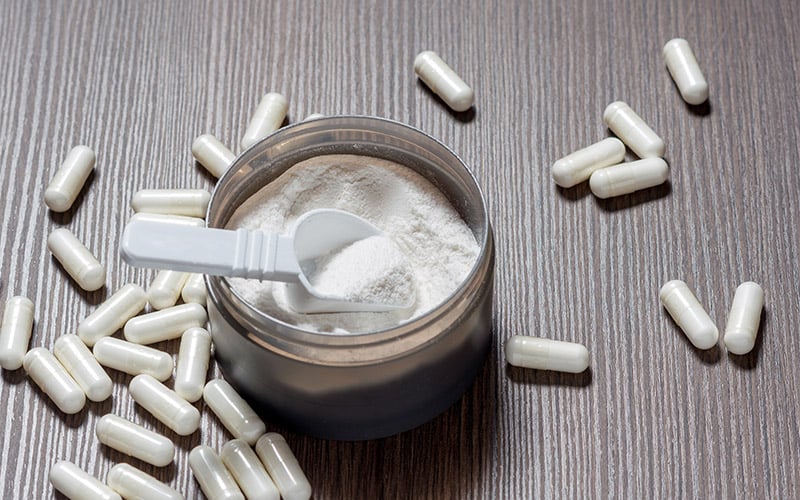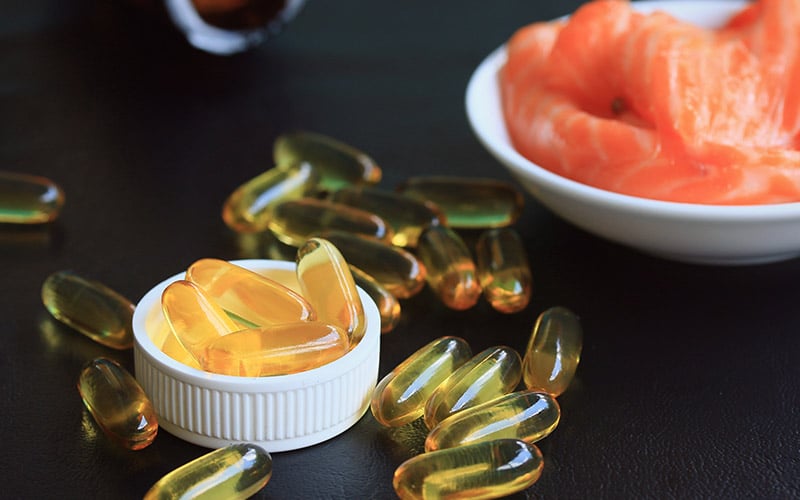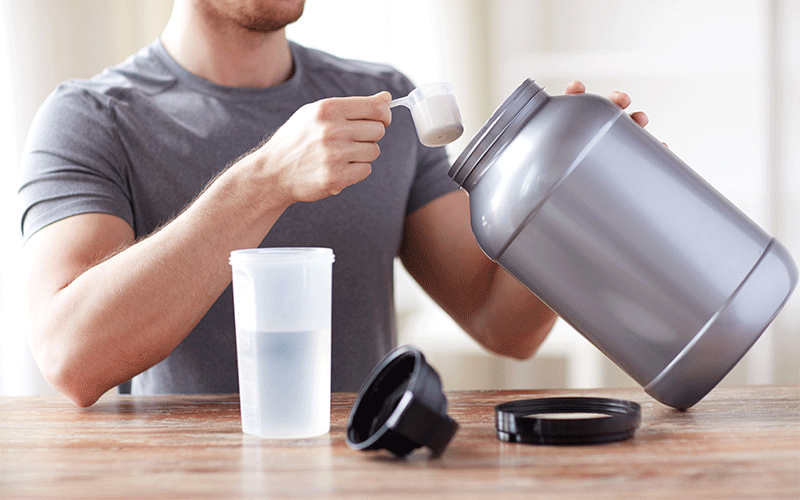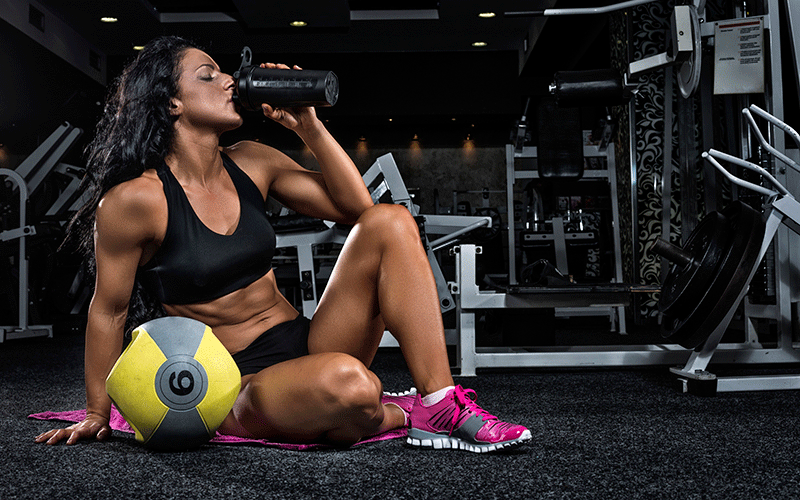01dragonslayer
Registered
- Joined
- Jun 18, 2022
- Messages
- 5,897
- Reaction score
- 3
- Points
- 38
With so many supplement options available, most of us ask the question, “What do I really need?” Learn the science behind these 5 core supplements and why they’re most beneficial for you and your goals.
You see many people using many things. In fact, most people use far more supplements than they really need. With so many different products to choose from, and so many supplement companies bombarding us with “what you need”, it is no wonder that many people do not know what to use and why. They often choose to use a myriad of products, hoping that somehow they will give them the results that they want.
The truth is that you probably don’t need all those supplements that you take. Sure, if you’re a seasoned veteran trainee or an athlete or someone who has pushed their natural potential to the limit, then that is when it’s time to start looking beyond the staples for your needs. Until then, if you are just a recreational trainee or generally active individual, the ‘staples’ are all that you need.
‘Basic staples’ are supplements that can be beneficial to every trainee. Now, let’s discuss each of these in a little more detail.

Derived from amino acids, creatine is a compound naturally occurring in the body, and is stored primarily in skeletal muscle. The body has a muscle creatine threshold of ~150-160 mmol/kg/dry weight (dw) of muscle, and because the body only produces 100-150 mmol/kg/dw1, creatine supplementation allows the body to store up to the muscle creatine threshold. Females have higher natural muscle creatine concentrations than males.3
Although a common practice, creatine loading is unnecessary, as once the creatine muscle threshold is reached, it can NOT be saturated further. Also contrary to popular belief, once muscle creatine threshold levels have been reached, supplementation of 2-3g of creatine daily is enough to keep them at threshold.
On cessation of creatine supplementation, muscle creatine stores return to resting concentration levels within ~4-5 weeks.6
Related: Creatine Pre Or Post Workout? When to Take Creatine Supplements
Vitamins and minerals both have many functions in the body, including buffering, general health, growth, energy expenditure, muscle contraction, immune health, recovery from exercise, and reproduction.2; 11 To improve their nutritional status and physiological functions, active individuals such as athletes have a higher requirement of vitamins and minerals than the sedentary individual2, and therefore require a multivitamin supplement with higher levels of minerals and vitamins.
Related: Will Taking a Daily MultiVitamin Increase My Gains?
As one of the three macronutrients essential for survival, fats are used in many of the body’s mechanisms for survival, including energy, immune function, forming parts of body structures, insulation and protection of vital organs, vision, and the synthesis of important hormones such as estrogens and testosterone.11
Fats are made up of fatty acids. ‘Good’ fats, also known as monounsaturated and/or polyunsaturated fats, are liquids at room temperature, and include the essential fatty acids (EFAs) omega-3, omega-6, and omega-9.11

Protein has many functions and roles in the regulation and maintenance of the body, including but not limited to forming vital body structures, energy, blood clotting, immune function, acid-base balance, fluid balance, contributing to satiety, hormones and enzyme production, and muscle growth. Because most of the body’s lean tissue is composed of muscle, and adequate protein must be available for amino acids to provide protein synthesis since muscle is primarily protein and water.11

According to studies done9 the general population requires only 0.8g/kg/day of protein, with bodybuilders and those trying to gain muscle mass require higher amounts, ranging from 1.0-1.2g/kg/day for those who do their resistance training in a steady-state, and as much as 1.5-1.7 g/kg/day for those who train in the early morning or in a fasted state.9; 10 Most individuals will be able to get their daily protein requirements from food. However, those individuals whose daily protein requirements mean that they need to consume in excess of 20-30g of protein per meal, can find eating the amount of food required strenuous and inconvenient; therefore, supplementing with a protein powder can alleviate much of the hassle, without sacrificing the quality of protein ingested.
Often, using a protein powder can be convenient for any individual, especially if one has time constraints or leads a lifestyle where they are always on the go.
Related: 5 Protein Powder Types You Should Consider Trying
Like protein, branched-chain amino acids have many functions within the body, but are primarily involved with energy, and can provide an instant energy source, especially when muscle glycogen stores are depleted.11
Supplementing with 10-30g of branched-chain amino acids daily can help the active individual in sparing muscle glycogen and in aiding recovery from exercise11, especially if training in hot environments.7; 9

Creatine is required for ATP resynthesis, and is especially important for those involved in anaerobic and/or resistance training. A multivitamin is essential for everyone to ensure that their daily mineral and vitamin needs are being met, with the active individual requiring more of certain minerals and vitamins to improve their nutritional status and physiological functions. Good fats are necessary for many of the body’s mechanisms for survival, especially in the synthesis of hormones.
Protein makes up the major component of the body, second only to water in the tissues of the body, with many functions and roles in the regulation and maintenance of the body. Branched-chain amino acids cannot be synthesized by the body and must therefore be consumed through the diet, with extra supplementation of them providing an instant energy source and aiding in recovery.
So, before you go searching for other supplements, make sure that you have the basic staples!
You see many people using many things. In fact, most people use far more supplements than they really need. With so many different products to choose from, and so many supplement companies bombarding us with “what you need”, it is no wonder that many people do not know what to use and why. They often choose to use a myriad of products, hoping that somehow they will give them the results that they want.
The truth is that you probably don’t need all those supplements that you take. Sure, if you’re a seasoned veteran trainee or an athlete or someone who has pushed their natural potential to the limit, then that is when it’s time to start looking beyond the staples for your needs. Until then, if you are just a recreational trainee or generally active individual, the ‘staples’ are all that you need.
The 5 Supplement Staples
Each individual uses different supplements, from joint support to multivitamins. However, there are only five products that can be considered as supplement staples:‘Basic staples’ are supplements that can be beneficial to every trainee. Now, let’s discuss each of these in a little more detail.
Staple #1: Creatine
Creatine is the most highly researched and proven supplement available, and has, in its time, been the latest ‘hot’ supplement on the market. Hype aside, creatine is a supplement that should be in the arsenal of any trainee. It has many functions in the body; such as acting as a buffer during anaerobic glycolysis, transport of Adenosine Triphosphate (ATP) during aerobic metabolism, and most importantly, the resynthesis of ATP during anaerobic exercise.4
Derived from amino acids, creatine is a compound naturally occurring in the body, and is stored primarily in skeletal muscle. The body has a muscle creatine threshold of ~150-160 mmol/kg/dry weight (dw) of muscle, and because the body only produces 100-150 mmol/kg/dw1, creatine supplementation allows the body to store up to the muscle creatine threshold. Females have higher natural muscle creatine concentrations than males.3
Although a common practice, creatine loading is unnecessary, as once the creatine muscle threshold is reached, it can NOT be saturated further. Also contrary to popular belief, once muscle creatine threshold levels have been reached, supplementation of 2-3g of creatine daily is enough to keep them at threshold.
On cessation of creatine supplementation, muscle creatine stores return to resting concentration levels within ~4-5 weeks.6
Related: Creatine Pre Or Post Workout? When to Take Creatine Supplements
Staple #2: Multivitamin
Vitamins and minerals are important to human health.2 Because of the nutritional practices of today’s society many individuals are deficient in vitamins and minerals, and therefore supplementing with a multivitamin is essential to ensure that these needs are being met.Vitamins and minerals both have many functions in the body, including buffering, general health, growth, energy expenditure, muscle contraction, immune health, recovery from exercise, and reproduction.2; 11 To improve their nutritional status and physiological functions, active individuals such as athletes have a higher requirement of vitamins and minerals than the sedentary individual2, and therefore require a multivitamin supplement with higher levels of minerals and vitamins.
Related: Will Taking a Daily MultiVitamin Increase My Gains?
Staple #3: Good Fats
Lipid is an umbrella term for all the different kinds of fat found in the body, including but not limited to cholesterol, steroids, and triglycerides, but for the purpose of this article, the term ‘fat’ is used.11As one of the three macronutrients essential for survival, fats are used in many of the body’s mechanisms for survival, including energy, immune function, forming parts of body structures, insulation and protection of vital organs, vision, and the synthesis of important hormones such as estrogens and testosterone.11
Fats are made up of fatty acids. ‘Good’ fats, also known as monounsaturated and/or polyunsaturated fats, are liquids at room temperature, and include the essential fatty acids (EFAs) omega-3, omega-6, and omega-9.11

Staple #4: Protein Powder
Protein makes up the major component of the body, second only to water in the tissues of the body, making up 17% of the body’s lean tissue. The building blocks of protein are called amino acids. Dietary protein is usually the source of amino acids for the body, especially of the essential amino acids, which the body cannot synthesize sufficiently to maintain physiological processes by itself.11Protein has many functions and roles in the regulation and maintenance of the body, including but not limited to forming vital body structures, energy, blood clotting, immune function, acid-base balance, fluid balance, contributing to satiety, hormones and enzyme production, and muscle growth. Because most of the body’s lean tissue is composed of muscle, and adequate protein must be available for amino acids to provide protein synthesis since muscle is primarily protein and water.11

According to studies done9 the general population requires only 0.8g/kg/day of protein, with bodybuilders and those trying to gain muscle mass require higher amounts, ranging from 1.0-1.2g/kg/day for those who do their resistance training in a steady-state, and as much as 1.5-1.7 g/kg/day for those who train in the early morning or in a fasted state.9; 10 Most individuals will be able to get their daily protein requirements from food. However, those individuals whose daily protein requirements mean that they need to consume in excess of 20-30g of protein per meal, can find eating the amount of food required strenuous and inconvenient; therefore, supplementing with a protein powder can alleviate much of the hassle, without sacrificing the quality of protein ingested.
Often, using a protein powder can be convenient for any individual, especially if one has time constraints or leads a lifestyle where they are always on the go.
Related: 5 Protein Powder Types You Should Consider Trying
Staple #5: Branched-Chain Amino Acids
As already mentioned, amino acids are the building blocks of protein. Branched-chain amino acids are the essential amino acids leucine, isoleucine, and valine. Essential amino acids cannot be synthesized by the body and must be obtained through either food or supplementation.11Like protein, branched-chain amino acids have many functions within the body, but are primarily involved with energy, and can provide an instant energy source, especially when muscle glycogen stores are depleted.11
Supplementing with 10-30g of branched-chain amino acids daily can help the active individual in sparing muscle glycogen and in aiding recovery from exercise11, especially if training in hot environments.7; 9

Conclusion
The average individual does not need supplementation, except for perhaps a multivitamin to ensure that they do not get any mineral and vitamin deficiencies. However, the more active individual, recreational trainee, or competitive athlete needs more than simply what they can ingest through their nutrition. Of the many supplement products available on the market, only five are essential and should be considered ‘staples’ in one’s supplement regime.Creatine is required for ATP resynthesis, and is especially important for those involved in anaerobic and/or resistance training. A multivitamin is essential for everyone to ensure that their daily mineral and vitamin needs are being met, with the active individual requiring more of certain minerals and vitamins to improve their nutritional status and physiological functions. Good fats are necessary for many of the body’s mechanisms for survival, especially in the synthesis of hormones.
Protein makes up the major component of the body, second only to water in the tissues of the body, with many functions and roles in the regulation and maintenance of the body. Branched-chain amino acids cannot be synthesized by the body and must therefore be consumed through the diet, with extra supplementation of them providing an instant energy source and aiding in recovery.
So, before you go searching for other supplements, make sure that you have the basic staples!
